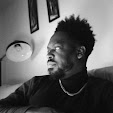So, I'm sitting here completing 15 annotated bibliographies that will eventually become a part of my M.Ed with Reading Specialist cert comprehensive portfolio. I'm minding my own business, when I flip through a particular book looking at what I highlighted and the notes I took so that I can put together a truthful bib.
Well, I came across this sentence:
"What counts as literacy in politics and institutions is often that which can be measured on tests, that which can be studies in a prepackaged sequence, and/or that which has been defined by the dominant culture as worth knowing." (p. 25)
{secretly cheering this author on as I reread more}
"Such practices pull our teaching away from children's lived literacies and push it toward predetermined sets of goals or standards--those set by individuals who are far removed from classrooms and who, often, are working with agendas that may not be in the best interest of particular students." (p. 25)
Here's one more for the road!
"The result of political and institutional discourses, and unexamined personal ideologies, is a static curriculum designed to connect primarily with the literacy practices of children who are deemed "ready" for school. Typically, not always, these are white, middle-class children who have learned to do things such as read and retell the stories in books, recognize and write the letters of the alphabet, write their names, and talk and act like "students."" (also, p. 25)
Note: the book is actually on observing children in various literacy situations and using such observations and notes to inform instruction.
When I see researchers, teacher-educators, teacher-educator-authors, seasoned educators and the like writing books including text books and making reference to the very sad direction that education has taken in this country, I feel a bit more empowered! Here are veteran educators and researchers who, I'm sure, would rather much write, uninterrupted, on pedagogy or on some analysis of the latest research. Instead, they must digress to inform their readers of the harmful effects of politics and other money-driven policies on real teaching and learning.
Sad.
And for the academics, here's the citation:
Owocki, G., & Goodman,
Y. (2002). Kidwatching: Documenting
children’s literacy development. Portsmouth, NH: Heinemann.

No comments:
Post a Comment